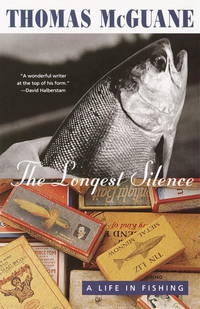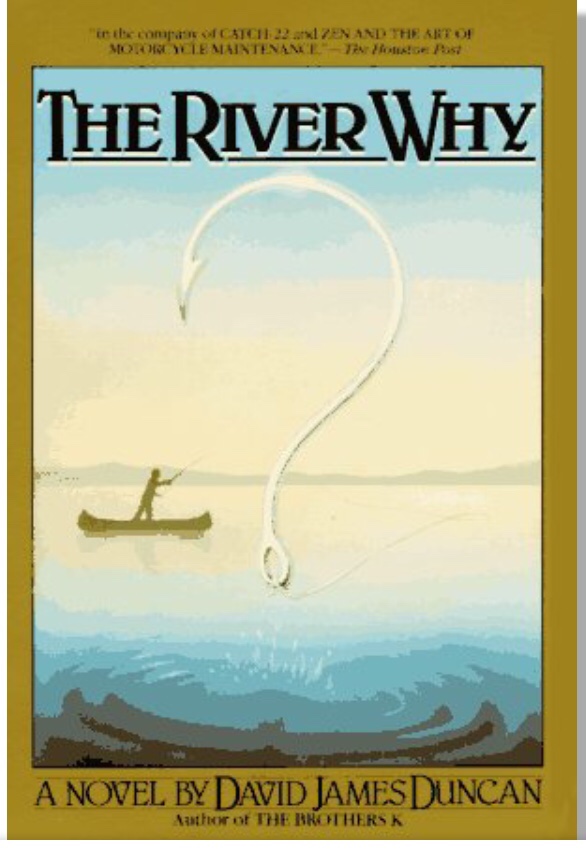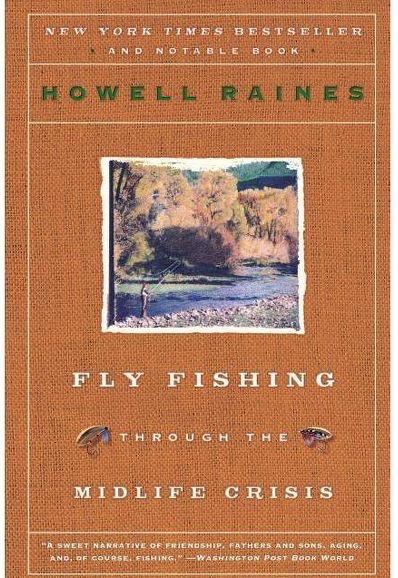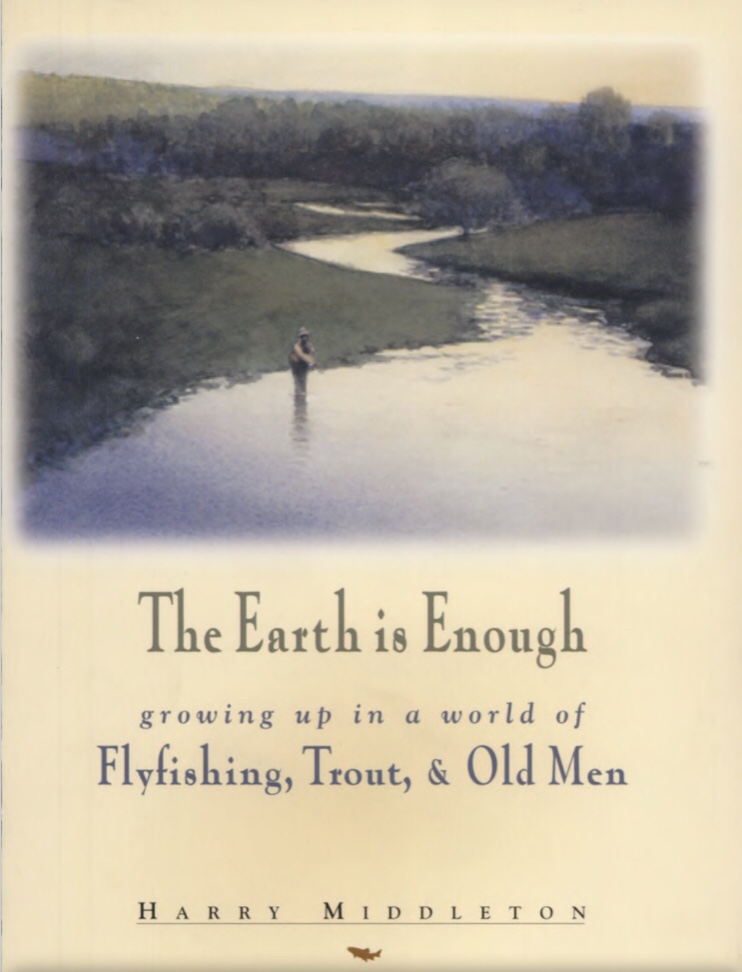Introduction
The Corona virus has afforded time for many of us to fish and to also catch up on reading and reflect. While on the water when I catch a fish using a technique or fly I read about years ago, I find myself reminiscing about the best books on fishing I have had the pleasure of reading. Some taught me a new technique like using a dry/dropper while others were fiction and just pure reading pleasure. If you search online, you will find numerous of lists of the Top 10, 25, and even 50 angling books. Of course these lists change from decade-to-decade as new works are published, older books fade out fashion, or interests change. For example, the 1970s and 80s saw a plethora of tomes like Swisher and Richards Selective Trout that embraced a more scientific approach to fishing. Once you were done reading some of these, you were nearly qualified as an entomologist. Far fewer of that ilk have been published in the last decade. The list I offer here is entirely personal, and given my advanced age, I hope it introduces some of the best of past, especially pre-2000 publications, to the up and coming, energetic angling young bloods of today (AKA anyone under 60).
The format I have chosen is somewhat different than most other “best” lists. I find it hard to compare a serious literary work of someone like Tom McGuane’s The Longest Silence with a funny-bone tickling raucous tale such as Skinny Dip by Carl Hiassen or a technical tome on caddis flies by Gary LaFontaine. So I have divided my list into a baker’s dozen categories with a few select books in each. I end with a category of books I have yet to read but are “musts.” I will be posting the list in a series of five installments. I hope you enjoy perusing my choices, and would welcome hearing of any additions you may have.
The first installment in the series focused on those I consider the Best Literature. This second installment covers three categories from the list below: Storytellers, Anthologies, and Oddities.
Installment 1 Link: https://hooknfly.com/2020/08/01/the-best-fishing-books-of-all-time/
Installment 3 Link: https://hooknfly.com/2020/09/11/the-best-fishing-books-of-all-time-installment-3/
Installment 4 Link: https://hooknfly.com/?p=7807
Installment 5 Link: https://hooknfly.com/2020/10/22/best-fishing-books-of-all-time-installment-5/
The Categories:
Best Literature
The Storytellers
Anthologies
Oddities
Funny Bone Ticklers
Zen of Fishing
How To/Technical Expertise
Science and Entomology of Fishing
Travel
Saltwater
History of Fishing
Fish That Shaped World History
The “To Read” List
THE STORYTELLERS
Some of the best fishing books are those penned by accomplished storytellers—writers who relate short, entertaining vignettes and brief evocative descriptions of the angling experience. John Gierach immediately springs to mind among today’s authors. Most anglers have heard of him and enjoy his work as I do, but what about Robert Traver? Traver and Gierach are at the tip top of my list of storytellers, always able to make me laugh and reflect as I recognize my own trials and tribulations on the waters chasing trout.
Trout Madness, being a dissertation on the symptoms and pathology of this incurable disease by one of its victims–Robert Traver (Judge John Voelker)

Before Gierach, Robert Traver was the king of spinning fishing yarns. Trout Madness was published in 1960 under the pseudonym of Robert Traver. In a bygone era when hardly anyone made a living out of writing about fishing, attorney John Voelker (AKA Robert Traver) published Trout Madness which recounts through 21 short stories his adventures and misadventures on the streams and ponds of Michigan’s Upper Peninsula. One of the most entertaining is the piece delving into the history of his fishing car, Buckshot. By 1958 Voelker had already established himself as a gifted writer with his best-seller, Anatomy of a Murder, a true story that Otto Preminger turned into an Academy Award nominee starring James Stewart. Voelker soon thereafter retired as a justice of the Michigan Supreme Court to focus on his writing. He followed up with another popular angling book, Trout Magic.
Trout Bum–John Gierach

Gierach is a worthy successor to Robert Traver as the sports’ premier storyteller and his early work, Trout Bum, is one of his best. A Colorado resident, Gierach published Trout Bum in 1986, popularizing that term in a book that has become a cult classic and is still my favorite among his prolific productions. In a series of short stories and tales he captures in a witty fashion the essence, delight, and sometimes comic nature of fly fishing. Since then he has published 19 other books in the same vein, one about every two-three years. His latest has just been released—Dumb Luck And The Kindness Of Strangers. All are good reads but are somewhat repetitive. One of my favorite fishing quips comes from an angler in one of Gierach’s tales, a definition of a fishing buddy: “Yeah he can be an a**hole, but we get along most of the time.” As an aside, Gierach probably has the most mispronounced last name among fishing authors. Variations include Gee-rack, Guy-rish, Guy-rack, etc. It’s Gear-ash from his own mouth in a musky fishing video that can be found on the web.
ANTHOLOGIES
Fishing has generated more books and literature than any other sport, reflecting its long history and millions of practitioners. Perhaps as much as any genre of writing, fishing also has a surfeit of anthologies—a collection of stories by multiple authors in one book. Usually made up of short stories or brief excerpts from a book, anthologies are perfect when you only have a limited time to read a story or two and don’t feel like plunging into a book-length commitment. They are also a great way to introduce yourself to new writers and their works that you may decide are worth delving into. I discovered Jim Harrison in that way. I have listed three of my favorite anthologies below, each compiled by a noted author or publisher who is also an avid, accomplished angler. Get one, settle back, and enjoy.
Fisherman’s Bounty/The Gigantic Book of Fishing Stories/Hook, Line, and Sinker—Nick Lyons


Perhaps more than any one person in the modern area, Nick Lyons is responsible for identifying and publishing gifted angling writers. Lyons was a college English professor and then an executive editor for Crown Publishers, a major press. He went on to create his own publishing company, Lyons Press, which has earned a deserved reputation as the leading publisher of quality fishing books. His first anthology and still one of the best is Fisherman’s Bounty which came out in 1970. It includes writings from historical figures like Izaak Walton as well as stories from modern day authors who changed the course of fly fishing with their books in the 1950s-60s like Ernest Schwiebert (Matching the Hatch), and Vincent Marinaro (In The Ring of The Rise). More recent anthologies like The Gigantic Book of Fishing Stories, which sports an incredible array of writers from Rudyard Kipling to Tom McGuane and John McPhee, and his latest, Hook, Line, and Sinker, carry on his tradition of wonderful anthologies.
Because of his tremendous impact on fly fishing literature, I am including this illuminating interview with Lyons from Fly Dreamers:
Fd: When did you start fly fishing? Can you tell us your memories from those days?
Nick: I had fished from before memory but I only started to fly fish seriously in my early 20s and was immediately mad for it. I had no instruction and found that I could not cast well when I threaded the line through the keeper ring. I fished in Michigan when I was in graduate school and caught nothing in the great AuSable. Back in NYC I fished a little club stream in New Jersey to which an army friend belonged–and finally began to get some fish, which made it all more worthwhile.
Fd: What are the reasons that made you start writing about fishing? What do you think drives people to do that?
Nick: I had been writing literary criticism but one day in my thirties I took a memorable trip to the Beaverkill with a remarkable new friend and immediately wrote “Mecca” and a little later “First Trout, First Lie” about a trout I had gigged in a small Catskill stream in mid-summer. FIELD & STREAM published them a few months later, my first writing about fishing. I loved the new “voice” I had found, so far from the heavy academic prose I had been writing.
Fd: How did you start working on publishing fly fishing books? How did you come across such great authors and works on the early days?
Nick: I was teaching English at Hunter College and (with four young children) took a second job at Crown Publishers. I wanted books closer to my heart than the commercial fare they published. Art Flick’s STREAMSIDE GUIDE was out of print and I wanted a copy so I got the rights and that was the first. Crown asked me to put together an anthology and I compiled FISHERMAN’S BOUNTY and happily this put me in touch with a whole host of first-rate writers, like Marinaro, whom I published next.
Fd: What can you tell us about the process of finding new authors?
Nick: There’s no substitute for reading widely, in all of the magazines on the subject, and in my case I asked just about everyone I came in contact with–or published–for their suggestions and pursued matters from there. I always leaned toward the literary but for non-fiction I tried to think of what “needed” to be done–Lefty Kreh on saltwater fly fishing, Swisher-Richards on new patterns–always the best I could find on worthwhile subjects.
Fd: Out of curiosity, what are the all-time top selling books on fly fishing?
Nick: SELECTIVE TROUT, ART FLICK’S STREAMSIDE GUIDE, PRACTICAL FISHING KNOTS, and THE ORVIS FLY FISHING GUIDE.
Fd: What are your thoughts on the amount of information available on the internet in contrast to the magazine and book industry?
Nick: I try not to follow the internet and consider most of it too simplified, in too many “bites”.
Fd: What are your all-time favorite books and authors related to the outdoors and fly fishing? What recent books would you recommend?
Nick: Ted Leeson, THE HABIT OF RIVERS. Roderick Haig Brown, A RIVER NEVER SLEEPS. Norman Maclean, A RIVER RUNS THROUGH IT. Tom McGuane, anything he writes.
Fd: You have published the collected writings of Hemingway and Traver on fishing. Do you think it is possible, in these times, to have another outdoors writer of this level? Or having one that achieves the success of Norman Maclean’s A River Runs Through It?
Nick: I doubt if anyone can match the sales of Maclean, which had a movie to push it along. But McGuane is every bit their equal, though very different.
Fd: How do you envision the future of fly fishing literature?
Nick: It’s getting harder to winnow out the best, with so many people in the pool–but you don’t need a lot of strong writers at any given time, and there are a lot I like. Practical writing is becoming more sophisticated in technical matters–color photography, for example.
Fd: A good fishing story is surely not enough, and a good writer still needs something to write about. What advice would you give to those who want to write about fly fishing?
Nick: Always read the best being written by others–and write from the heart not for the purse. Quintilian says: The heart makes the eloquence.
Fd: Being a key figure in the fly fishing editorial world, have you got a particular aim or message to give out to the global fly fishing community?
Nick: Write less, write more carefully, read the best, write from the heart, avoid all fads.
Fd: Do you consider it important to know about fly fishing history? Why?
Nick: Sure. Faulkner says the past is never past and fly fishing is no exception: knowledge of the past colors everything we do. I’m a passionate supporter of our museums, which preserve and celebrate the past. Some writers, like Theodore Gordon, are eminently wise and readable and often tell us much that we’re forgotten.
Fd: Some fishing. What is your favorite kind of fly fishing (dries, nymphing, streamers, etc.) and what are your favorite spots?
Nick: Dry flies on chalk streams and spring creeks (like a couple I know in Montana).
Fd: As a final point, what does fly fishing mean to you?
Nick: Too much to answer briefly. I guess all the books and articles I’ve written address this. Or I hope so.
Silent Season—Russell Chatham

Russell Chatham, who passed away recently, was a prolific writer of fishing books, but was best known for his beautiful, highly-sought-after artwork that often featured outdoor and angling scenes. His anthology, first published in 1978 and again in 1988, introduced me to a bevy of writers I had never heard of like Jim Harrison, Jack Curtis, and Harmon Henkin. It also includes Tom McGuane’s jewel, “The Longest Silence.” A bonus is the illustrations in the book by Chatham.
Into The Backing—Incredible True Stories About The Big Ones That Got Away—And The Ones That Didn’t—Lamar Underwood

What angler could possibly resist a book with this title? An interesting anthology as it has a unifying them—fighting big fish! Underwood definitely has the credentials to pull together such a tome—he is the former editor-in-chief of Sports Afield and Outdoor Life. This is one of my favorite anthologies with a smorgasbord of authors ranging from Joe Brooks (The Hat Trick), Roderick Haig-Brown (Episodes from Fisherman’s Spring), and Zane Grey (The Dreadnaught Pool).
ODDITIES
There is a select group of fishing books that can only be described as outside-the-box oddities. After reading them you can only shake your head, bemused and semi-bewildered at the fertile mind of the authors who concocted these books and tales. The first in particular is a mind-blower!
Trout Fishing In America—Richard Brautigan

Leading the pack by a fair margin is Richard Brautigan’s Trout Fishing In America. Brautigan, a cross between a beatnick and hippie, was a counter-culture, youth movement icon in the riotous 1960s. Trout Fishing America was published in 1967 and sold over 4 million copies—probably a record among modern angling books. This is a challenging book to read. Trout Fishing In America turns out to be a person searching for the meaning of life. If you can get by this and other odd constructs in the book (perhaps with the assistance of a little cannabis), you will discover some real gems like my favorite vignette, “The Hunchback Trout.” Brautigan was clearly an avid angler as well as a writer, poet, and free spirit.
Blues—John Hersey

John Hersey was a ground-breaking journalist/writer who first made his mark at the end of WWII with a Pulitzer Prize-winning novel Bell For Adano, a story about the Allied occupation of a town in Sicily. He soon followed with a magazine-length article in the New Yorker titled “Hiroshima” that recounted the impact of the first atomic bomb on six Japanese citizens. Hersey went on to write numerous other books and articles and teach writing courses at Yale. He is probably the only angling writer who has been honored with a Postal Service stamp in his name. Somehow in the midst of all this prolific production, he penned a book of angling for Bluefish, a quarry prized by saltwater fishermen for their aggressive fighting spirit. As one reviewer noted, it is a paean to Bluefish that is chummed with “gobbets of ichthyology, oceanography, seamanship, and fishing lore.” The organization of the book is rather artificial—a sage old fisherman and neophyte angler meet serendipitously on a dock and then spend a summer on 12 fishing trips chasing Blues. For each trip Hersey weaves in fishing tips, thoughts on what motivates anglers, random ocean tidbits, recipes for preparing Bluefish dinners, poems from poets who wrote about fish, and an eloquent, prescient warning about the coming environmental disaster for the seas. Eclectic indeed, but a good read.
The Feather Thief, Obsession, and the Natural History Heist of the Century—Kirk Wallace Johnson

Another book by a journalist, The Feather Thief could be in a class of its own. It is an oddity not because of the idiosyncrasies of the author and his writing style, but because of the outrageously bizarre true tale it tells. Try to imagine a secretive group of fly tiers who will do just about anything and pay any price to get their hands on plumes from endangered and extinct birds so they can tie their gaudy traditional salmon flies to exact specifications set forth in antique books. Then further imagine among them a young accomplished American flautist/fly tier who in 2009 breaks into a branch of the British Museum outside London and steals the skins of hundreds of rare birds, some centuries old that were gathered by renowned explorers and naturalists. He proceeds to sell them for thousands of dollars. Will he be caught and punished? What happened to all those priceless skins? It all adds up to an intriguing true-crime novel.
Installment Three will cover Funny Bone Ticklers, Zen of Fishing, and How To/Technical Expertise








